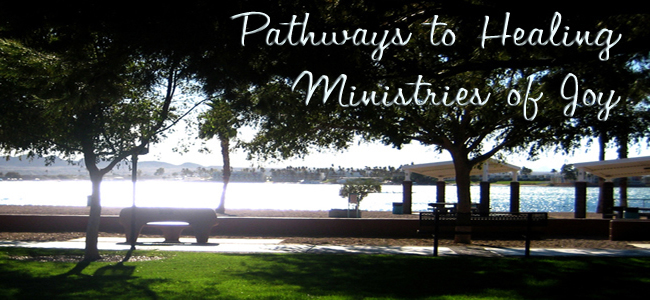Many years ago while training as a chaplain in a Phoenix teaching hospital, I faced what is perhaps the hardest of all questions. “What’s this life all about?” Here lies a person whose company took a tumble.“I’ve tried to stay on top financially,” he said, adding, “My wife left me last month and I was diagnosed yesterday with a terminal disease. I’m losing so much. How can I believe in a God who allows such misery?”
I inwardly thought, you place a lot of trust, expecting me to answer that question. There at his bedside I listened as he cried. It helped to remind myself that chaplaincy is about being a comforter—not answering questions that have puzzled the best of theologians. Today I reflect on his question, after having ministered to a multitude of patients over two decades of time.
It is a subject I have pondered many times. Actually, this man’s answer can be found in the book of Job. For Job had a relationship with His Creator. He lost his health in a rapid, wretched way, along with everything he owned. Even his children were killed! He knew God alone could restore him by giving the faith, the hope and the peace he needed to go on. Amazingly, his wife complained about his ongoing faith and said, “Curse God and die.” Yet, Job knew the most important thing of all was to hang onto the relationship he had with God. From the ash heap, he said, “Though He slay me, yet will I trust in Him.”
In Genesis, the first book of the Bible, we see God being in an intimate, loving relationship with the first people, named Adam and Eve. They walked and talked together is the imagery Genesis extends to us. All through the Bible, the message is about our being in relationship with God—and with one another.
Even today, God will speak with us when we learn to listen. How? In a “still, small voice.” When I think God has spoken to me, I test it, asking myself three questions? Is what I heard in keeping with Scripture? Is it in keeping with the nature of God as I’ve come to know it (through “companioning” with Him consistently)? And, does it give me peace? Actually, sometimes that peace comes only after dealing with what God is wanting me to see. I lean on the truth of Titus 1:2, and other biblical passages promising God will never lead us contrary to what is written in His Word.
There is a lot to learn from Job. He held no punches as he suffered. He blasted out the pain of his soul releasing the anguish and shock over what was happening to him. He let God know how desperate he felt. God’s love poured out continuously through His hearing all Job had to say. In the end Job listened, while God spoke back. Once he could grasp something of God’s omnipotence, wisdom and providence, Job’s confession and repentance brought full restoration.
Before his eventual death, Job’s fortunes were not just restored. “The Lord gave Job twice as much as he had before” (Job 42:10). He had seven more sons and three daughters and lived to age 140. God rebuked Job’s friends for their multiple dissertations. They wanted Job to get their points of view—to better himself and get on with life. But, it was when Job prayed for his friends (forgiving them for making his trials harder) that his fortunes were restored and his life was healed.
In other words, Job got his heart in a better place in life by talking it out with God—and listening to the point God answered back. Although Scripture states Job was “blameless and upright,” he came face to face with a great need to see God in a different way. It was a time of testing, which comes for people—even the best of people. The book of Job is an amazing read, especially during times of suffering. Why are we tested? So, we are able to see ourselves more clearly.
Holy Writ shows us that this life is all about relationship. A loving relationship, because, “God is love” (1 John 4:7).That Scripture passage says clearly that if we claim to love God, yet do not love others we are liars. Wow! That can be scary.
As it turns out, love is the greatest power in the universe. And, the more we love the more we become like the Creator.
The opposite is true, as we can be selfishly grasping for what we want in life, with little thought of others. We can even be outright mean, thinking nothing of stealing from others and even taking their lives before their time is up. For God has given humans the ability to make choices, through the gift of free will.
Looking at history it is easy to see there is plenty of temptation to walk away from God’s love, that is until we open our human hearts to Him. Then, slowly there is a stream of tender care that can grow deep and wide. As God’s love comes to us He leads us in the path of righteousness, a path that sees us living in a love relationship with God, self and others.
“For God so loved the world that He gave His only begotten Son, that whoever believes in Him should not perish but have everlasting life. 17 For God did not send His Son into the world to condemn the world, but that the world through Him might be saved” (John 3:16-17.)


Leave A Comment